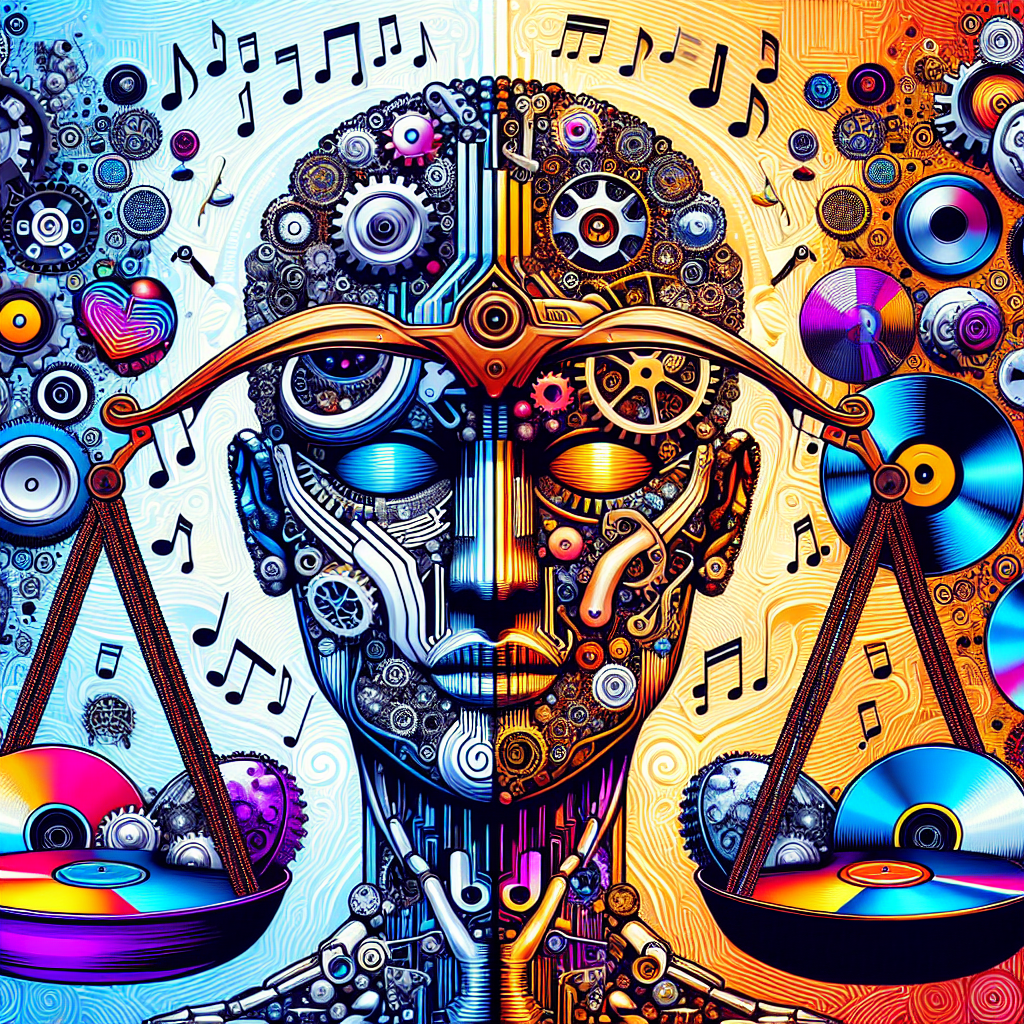The Ethics of AI in Music: Who Owns the Rights?
Artificial Intelligence (AI) has become an increasingly powerful tool in the music industry, with AI algorithms being used to compose music, generate lyrics, and even create new sounds. While AI has the potential to revolutionize the way music is created and consumed, it also raises important ethical questions about creativity, ownership, and the rights of artists.
One of the key ethical issues surrounding AI in music is the question of who owns the rights to AI-generated music. In traditional music production, the rights to a song are typically owned by the songwriter or composer, who is entitled to royalties and other forms of compensation when the song is used or performed. But when AI is used to generate music, who should be considered the creator of the music and who should own the rights?
This question becomes particularly complex when AI is used to generate music that closely resembles the style of a particular artist or band. In these cases, should the rights to the music belong to the original artist, who may have inspired the AI algorithm, or to the developers of the AI technology, who programmed the algorithm to create the music?
Another ethical issue related to AI in music is the potential for AI algorithms to infringe on the intellectual property rights of existing artists. For example, if an AI algorithm generates a song that sounds strikingly similar to a hit song by a popular artist, does the original artist have grounds to sue for copyright infringement? And if so, how can it be proven that the AI algorithm was deliberately copying the original song, rather than simply generating a similar melody or chord progression by chance?
Furthermore, there is the question of whether AI-generated music can be considered truly original and creative, or whether it is merely a replication of existing musical styles and conventions. If AI is used to generate music that is indistinguishable from human-created music, does the AI algorithm deserve the same legal protections and rights as a human songwriter or composer?
In order to address these ethical issues, it is important for the music industry to develop clear guidelines and regulations regarding the use of AI in music production. These guidelines should establish criteria for determining ownership of AI-generated music, as well as procedures for resolving disputes over intellectual property rights. Additionally, there should be transparency and accountability in the use of AI technology in music production, with developers and artists being required to disclose when AI algorithms are used in the creation of music.
FAQs:
Q: Can AI algorithms create music that is truly original and creative?
A: While AI algorithms can generate music that is indistinguishable from human-created music, questions remain about whether this music can be considered truly original and creative. Some argue that AI music lacks the emotional depth and personal expression of human-created music, while others believe that AI has the potential to push the boundaries of creativity and innovation in music.
Q: Who owns the rights to AI-generated music?
A: The question of ownership of AI-generated music is a complex and contentious issue. In general, the rights to AI-generated music are typically owned by the developers of the AI technology, who programmed the algorithm to create the music. However, in cases where AI is used to generate music that closely resembles the style of a particular artist or band, the rights to the music may be contested between the original artist and the developers of the AI technology.
Q: What are the ethical implications of using AI in music production?
A: The use of AI in music production raises important ethical questions about creativity, ownership, and the rights of artists. Some of the key ethical issues include determining ownership of AI-generated music, preventing infringement on the intellectual property rights of existing artists, and ensuring that AI-generated music is truly original and creative.
In conclusion, the use of AI in music production has the potential to revolutionize the music industry, but it also raises important ethical questions that must be addressed. By developing clear guidelines and regulations for the use of AI in music production, the music industry can ensure that artists, developers, and consumers are all treated fairly and ethically in the age of AI-generated music.

